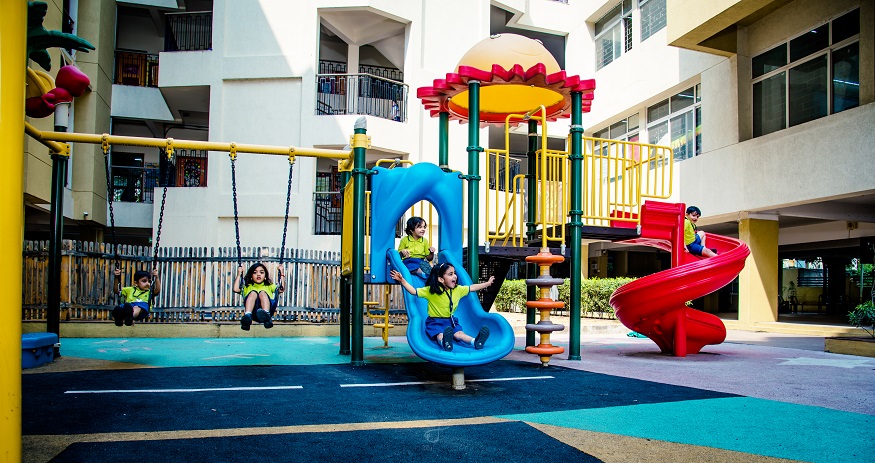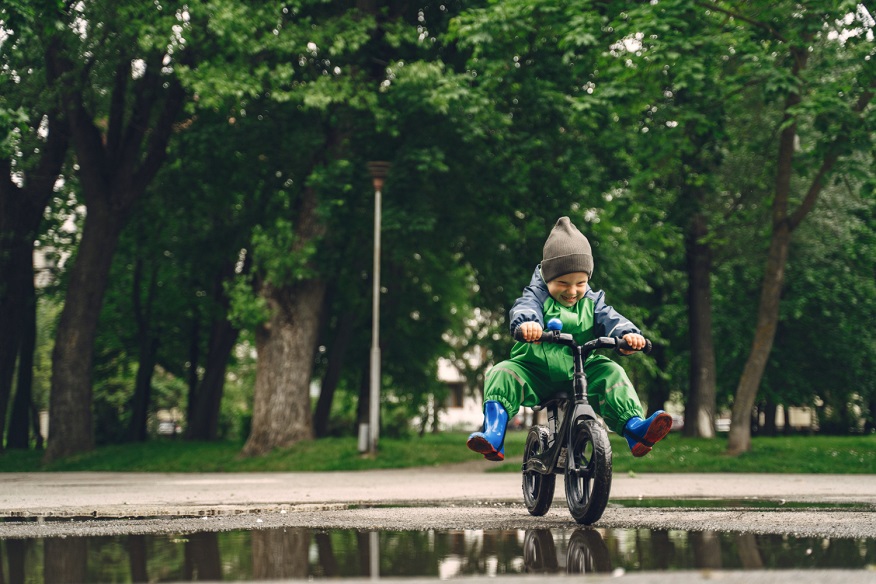The best preschool age can vary based on a child’s individual development and readiness. There is no strict rule that can be applied to determine the correct age. Most children start kindergarten or preschool, between 4 to 6 years old. Some factors to keep in mind when determining the best age to start kindergarten are as below.
Determining the development readiness of a child to admit to kindergarten
- Age: Most schools have an age requirement for entering kindergarten, typically between the ages of 4 and 6. The best age to start kindergarten can vary based on a child’s individual development and readiness. However, kindergarten or preschool age for kids is between 4 to 6 years old. Here are some factors to consider when determining the best kindergarten age for kids to start school.
- Developmental readiness: Children develop at different rates, both physically and mentally. Some children are more emotionally ready for kindergarten, while others may need more time. Development readiness does not depend on the kindergarten age of the kids.
- Physical development: Children who are ready for kindergarten should be able to manage basic self-care tasks, such as using the bathroom independently, dressing themselves, and eating without support. They should also have basic coordination skills, such as the ability to hold a pencil and cut with scissors.
- Social and emotional skills: In kindergarten, we don’t focus on just learning about academic skills, but also provide an opportunity for children to develop social skills and make new friends. Consider whether your child is comfortable around other children and is able to share, take turns, and follow basic rules. Kindergarten requires children to interact with other children and follow rules, cooperate, and resolve conflicts peacefully. Children who are ready for kindergarten should be able to share, take turns and work with others. They should also be able to regulate their emotions and handle frustration without resorting to physical or verbal aggression. Joining kindergarten is a significant milestone for both children and their families. To integrate into kindergarten, children should have social and emotional skills, which enable them to manage their emotions, communicate and engage with friends and adults.
- Independence or Interpersonal skills: Children should be able to interact positively with others, such as sharing, taking turns. Independence: Kindergarten requires a level of independence, including being able to follow instructions, manage personal belongings, and use the bathroom independently. Kindergarten requires a level of independence, including being able to follow instructions, manage personal belongings, and use the bathroom independently and these do not depend on the kindergarten age of the kids.
- Self-regulation: Effectively managing their emotions and behaviours is important for children. For instance, they should be able to calm themselves down when upset, follow rules and routines, and adapt to changes in their environment.
- Communication skills: Children should be able to communicate their needs, wants, and ideas effectively. They should be able to understand verbal and nonverbal communication.
- Independence: Children should be able to independently use the bathroom, wash their hands, and dress themselves.
- Language development and skills: Children should have enough language skills to be able to communicate their needs and ideas. Children who are developmentally ready for kindergarten should be able to follow simple instructions, ask and answer questions, and understand basic vocabulary. Children who can communicate effectively with others and understand basic language concepts may have an easier time adjusting to kindergarten.
- Curiosity and willingness to learn: Eagerness to explore, ask questions, and learn new things, is an essential part of learning. Cognitive development: Kindergarten introduces basic academic concepts, such as letters, numbers, and shapes. Children who are ready for kindergarten should be able to focus on simple tasks, follow directions, and have some understanding of these concepts.
Signs that show your child is not ready for kindergarten
Many times, children display signs that enable you to understand that they are not ready for kindergarten.
- Lack of social skills: In a classroom setting, if your child has trouble making a friend or interacting, they may struggle.
- Difficulty with following directions: If your child has trouble following simple instructions, they may have difficulty with the structured environment of kindergarten
- Poor language skills: If your child finds it difficult to communicate or has a limited vocabulary, they may have difficulty to understand and participate.
- Lack of self-care skills: Children who are unable to take care of their basic needs such as using the restroom, dressing themselves, or feeding themselves may struggle with the independence required for kindergarten.
- Lack of focus: Children who are unable to focus or sit through the activities, may struggle with the pace of the activities.
- Emotional immaturity: Children who get upset easily or have difficulty managing their emotions, may struggle with their social and emotional needs.
It is ideal to wait for a year before enrolling your child in kindergarten or consider preschool if you notice any of these signs.
Delaying Kindergarten: Is waiting a year right for your child?
Delaying kindergarten can be the right choice for some children. Every child develops at their own pace. Some may not be ready for the academic and social demands at the age of five.
Giving your child more time to develop skills and maturity is of primary importance. It can also give them an advantage academically.
However, delaying kindergarten may not be the right choice for every child. Your child’s needs and abilities are important to note when considering opportunities available. The decision to delay kindergarten should be based on what is best for your child.
Conclusion
Ultimately, the decision to start kindergarten should be based on a child’s individual readiness rather than a specific kindergarten age. One must know that it is very crucial to acknowledge the fact that every child is different and evolves at their own speed.
At Euroschool we believe kindergarten teachers are skilled at helping children develop these skills, but parents can also help by providing opportunities for their children to practice social and emotional skills, such as participating in playdates, encouraging communication, and teaching self-regulation strategies.
If you are looking for a top schools in Bangalore, Pune, and Hyderabad for your child, EuroSchool is a great option. We offer a unique curriculum, excellent teachers, and state-of-the-art facilities. Your child is sure to have a fun and enriching experience at EuroSchool











